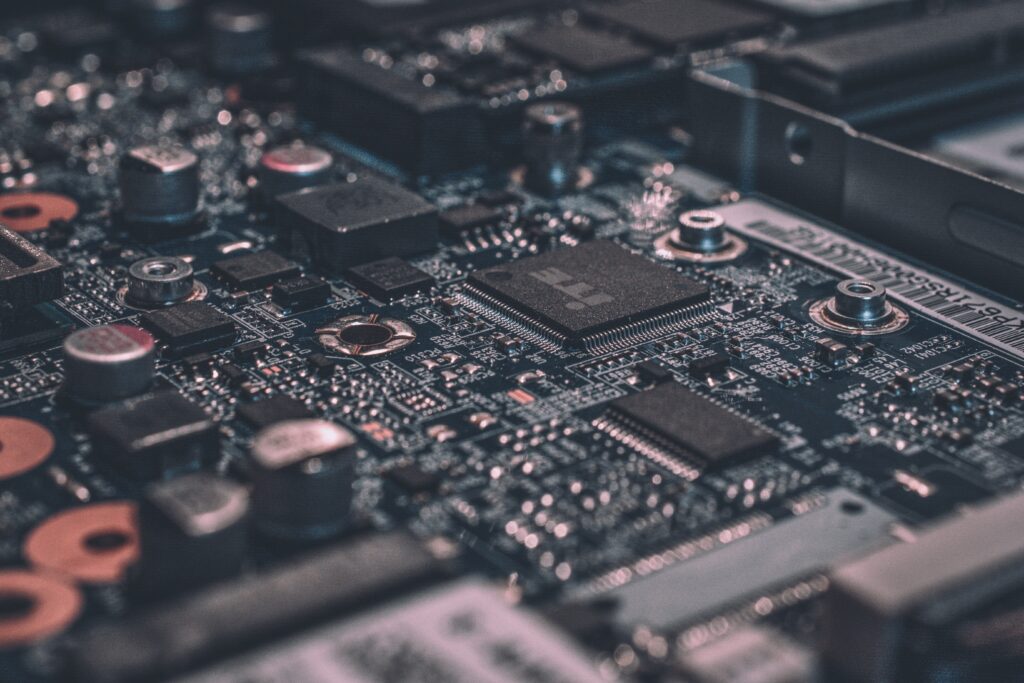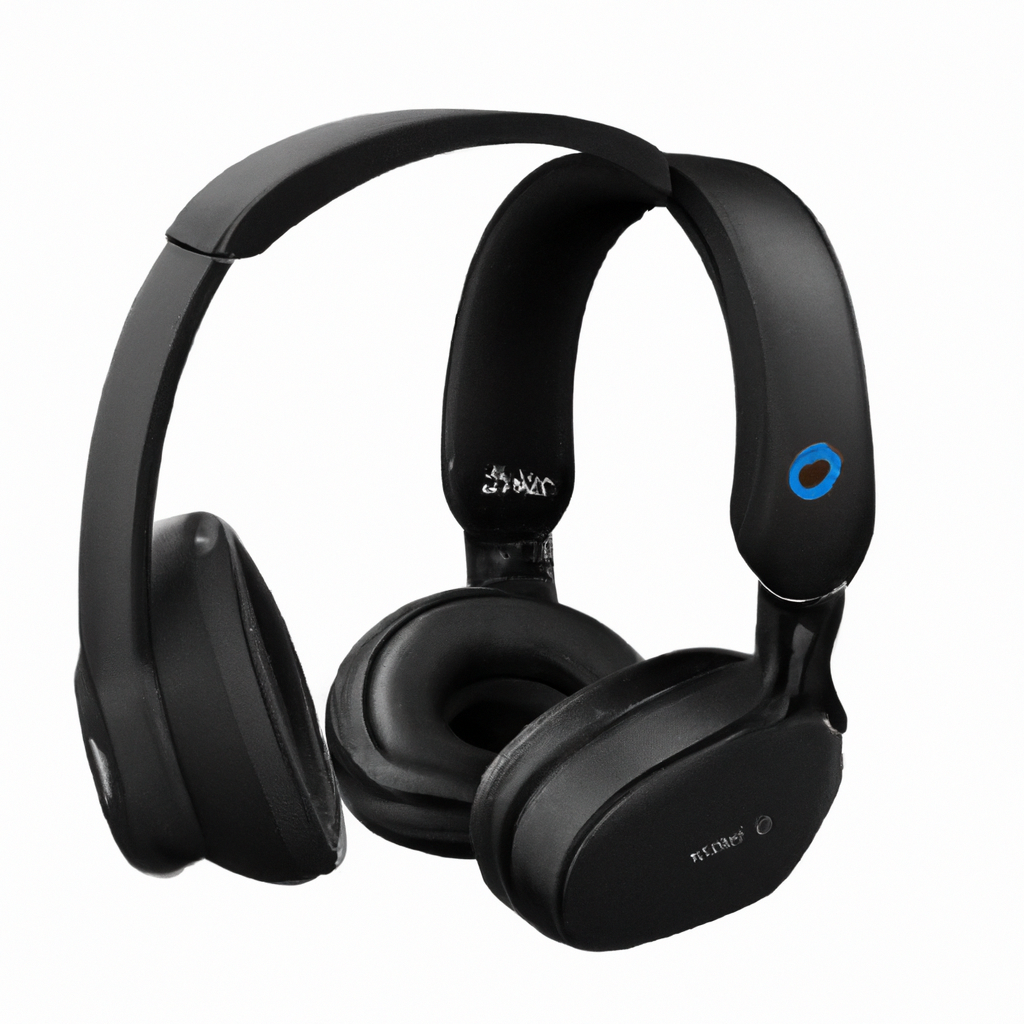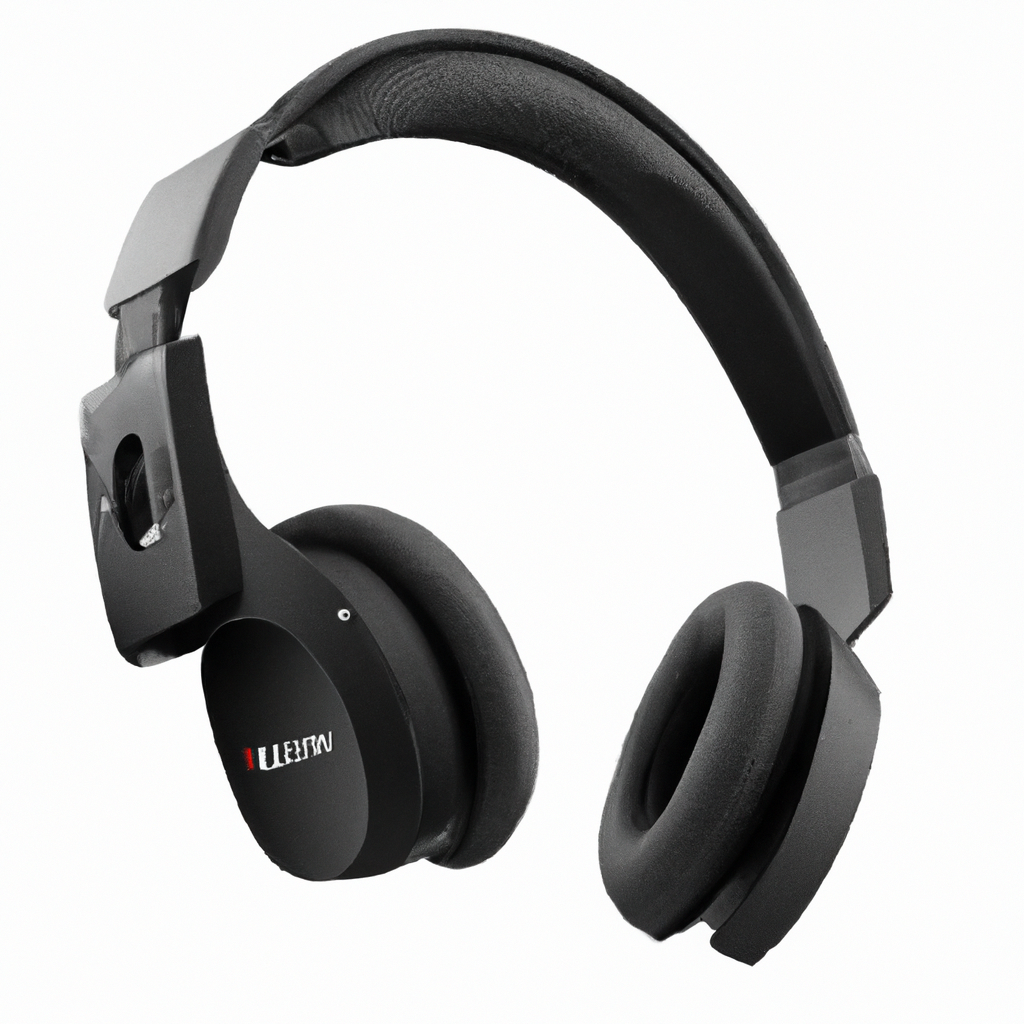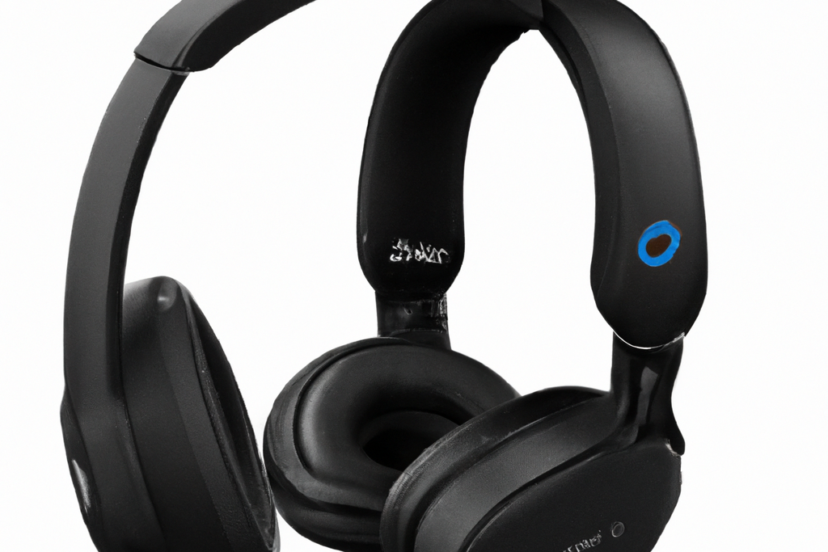What Is The Difference Between Wired And Wireless Gaming Headsets: 10 Important Differences
What Is The Difference Between Wired And Wireless Gaming Headsets: Introduction
In the ever-evolving world of gaming, one cannot underestimate the importance of having the right equipment. Amongst the essential items for any avid gamer is the gaming headset, but the decision between wired and wireless can leave you pondering. But What Is The Difference Between Wired And Wireless Gaming Headsets?
Wired and wireless gaming headsets each possess their unique advantages and disadvantages, making it crucial to understand the differences before making a purchase. From the freedom of movement to audio quality and convenience, this article aims to shed light on the contrasting features of these two types of headsets, empowering you to make an informed decision that will enhance your gaming experience.

What Is The Difference Between Wired And Wireless Gaming Headsets: Sound Quality
Wired Gaming Headsets
Wired gaming headsets generally provide superior sound quality compared to their wireless counterparts. This is because the wired connection ensures a stable and uninterrupted transmission of audio signals, resulting in clearer and more accurate sound reproduction. With wired headsets, you can experience immersive gaming audio with precise details and excellent audio positioning, allowing you to pinpoint the direction of in-game sounds more accurately.
Wireless Gaming Headsets
Wireless gaming headsets have come a long way in terms of sound quality, but they still cannot quite match the audio fidelity of wired headsets. While wireless technology has advanced and improved over the years, the inherent limitations and potential interference in wireless connections can lead to occasional drops in sound quality. However, it is worth noting that high-end wireless gaming headsets can still provide impressive audio performance, especially when using advanced wireless technologies like Bluetooth 5.0 or proprietary connections.
What Is The Difference Between Wired And Wireless Gaming Headsets: Latency
Wired Gaming Headsets
When it comes to latency, or delay, wired gaming headsets have a significant advantage. The direct wired connection between the headset and the gaming device minimizes latency to almost negligible levels. This low latency ensures that the audio you hear is in sync with the on-screen action, enhancing your gaming experience and giving you a competitive edge. Whether it’s the sound of bullets whizzing past or footsteps approaching, wired headsets allow for real-time audio feedback, crucial for fast-paced gaming.
Wireless Gaming Headsets
Wireless gaming headsets, while greatly improved over the years, still have a slight disadvantage in terms of latency compared to their wired counterparts. This is due to the additional step of transmitting audio wirelessly, which introduces a small delay. However, modern wireless gaming headsets have been designed to minimize latency as much as possible. High-quality wireless headsets utilize advanced wireless technologies, such as low latency codecs or dedicated wireless adapters, to reduce latency to imperceptible levels for most gamers.
Mobility and Range
Wired Gaming Headsets
Wired gaming headsets have limited mobility due to their physical connection. The headset’s wired nature restricts your movement to the length of the cable, making it less ideal for gamers who prefer freedom of movement during gameplay. Additionally, the cable can sometimes get tangled or caught on objects, causing inconvenience and potential damage to the headset.
Wireless Gaming Headsets
Wireless gaming headsets offer unparalleled mobility and freedom of movement. Without the need for a physical connection, you can move around more freely without the constraints of a cable. Whether you need to step away from your gaming setup momentarily or simply prefer a clutter-free environment, wireless headsets provide the flexibility and convenience you need. Moreover, modern wireless headsets come with impressive range capabilities, allowing you to maintain a stable connection even if you are several meters away from your gaming device.
What Is The Difference Between Wired And Wireless Gaming Headsets: Battery Life
Wired Gaming Headsets
Battery life is not a concern with wired gaming headsets since they do not rely on batteries for operation. As long as you have them plugged into your gaming device, you can game for hours without worrying about running out of power. This makes wired headsets ideal for extended gaming sessions or situations where access to power sources might be limited.
Wireless Gaming Headsets
Battery life is a crucial consideration for wireless gaming headsets. Since they rely on internal batteries for power, their usage time is limited by the battery’s capacity. The battery life of wireless headsets can vary significantly depending on the model, usage patterns, and features used. Some wireless headsets offer extended battery life, allowing you to game for hours on a single charge. However, it is important to note that using features like RGB lighting or higher volume levels can reduce the battery life significantly.

Ease of Use
Wired Gaming Headsets
Wired gaming headsets are extremely easy to use. Simply plug in the headset’s cable into the audio output of your gaming device, and you are good to go. There is no need for any additional setup or configuration. Most wired headsets also come with in-line controls that allow you to adjust the volume or microphone settings conveniently, without needing to navigate through software or menus.
Wireless Gaming Headsets
While wireless gaming headsets require an initial setup to establish the wireless connection, they are generally straightforward and user-friendly. The setup process typically involves pairing the headset with a wireless transmitter or the gaming device itself. Once paired, the headset will automatically connect to the transmitter when it is within range. Features like on-headset controls or software applications provide easy access to various settings, including volume control, equalizer settings, and microphone adjustments.
What Is The Difference Between Wired And Wireless Gaming Headsets: Price
Wired Gaming Headsets
Wired gaming headsets tend to be more affordable compared to their wireless counterparts. Since they do not require complex wireless technology, the manufacturing costs are generally lower, resulting in a more budget-friendly price tag. This makes wired headsets a cost-effective option, especially for gamers on a tight budget or those who prioritize sound quality and latency over mobility and convenience.
Wireless Gaming Headsets
Wireless gaming headsets, due to the inclusion of wireless technology, tend to be more expensive than wired headsets with similar audio quality. The additional cost stems from the complex components required for wireless connectivity, such as wireless transmitters, Bluetooth modules, or proprietary wireless adapters. However, the price difference is justified by the added convenience and freedom of movement that wireless headsets offer, making them a worthwhile investment for those who prioritize mobility and flexibility while gaming.

Compatibility
Wired Gaming Headsets
Wired gaming headsets are compatible with a wide range of devices, including gaming consoles, computers, smartphones, and audio systems. As long as the device has an audio output jack or port, you can easily connect a wired headset to enjoy high-quality audio. This versatility makes wired headsets a reliable choice for gamers who switch between different platforms or devices frequently.
Wireless Gaming Headsets
Wireless gaming headsets are designed to be compatible with specific devices or platforms. Depending on the headset’s technology, it may only work with certain gaming consoles or require additional adapters for compatibility. However, many wireless headsets now feature multi-platform compatibility, allowing you to use them with different devices and platforms. It is essential to check the compatibility and connectivity options before purchasing a wireless headset to ensure it works seamlessly with your preferred gaming device.
What Is The Difference Between Wired And Wireless Gaming Headsets: Physical Connection
Wired Gaming Headsets
Wired gaming headsets rely on physical connections to transmit audio signals. They typically feature a 3.5mm audio jack or a USB connector, depending on the device they are meant to be used with. The physical connection ensures a stable and secure transmission, minimizing the risk of audio interruptions or disconnections. However, you need to make sure that the headset’s cable length is suitable for your gaming setup, as shorter cables might restrict your movement or require the use of extensions.
Wireless Gaming Headsets
Wireless gaming headsets, as the name suggests, do not require a physical connection. Instead, they utilize wireless technology to establish a connection between the headset and a transmitter or the gaming device itself. The absence of cables provides a cleaner and more organized gaming space, eliminating any potential cable clutter. However, it is important to consider the wireless range and ensure that the headset maintains a stable connection within that range to avoid audio dropouts or interference.

What Is The Difference Between Wired And Wireless Gaming Headsets: Convenience
Convenience of Wired Gaming Headsets
Wired gaming headsets are synonymous with simplicity and user-friendliness. Their plug-and-play nature means you can instantly connect them to your gaming device via a 3.5mm jack or USB port, without any complex setup. This immediate connectivity is especially advantageous for gamers who prefer to dive straight into action without any preliminary steps. There’s no need to pair devices or install additional software, making them an excellent choice for gamers who value straightforward functionality.
One of the most significant advantages of wired headsets is the uninterrupted gaming experience they offer. Since they draw power directly from the connected device, there’s no concern about running out of battery in the middle of an intense gaming session. This uninterrupted power supply ensures you can game for extended periods without worrying about recharging, ideal for long gaming marathons or tournaments.
Moreover, wired headsets typically offer consistent audio quality since they are directly connected to the source device. This direct connection eliminates potential issues like audio lag or interference, which can occur with wireless connections. Also, for gamers who are particular about sound latency, especially in competitive gaming scenarios, wired headsets provide a slight edge with their instantaneous audio transmission.
Convenience of Wireless Gaming Headsets
Wireless gaming headsets bring a new level of convenience and flexibility to the gaming experience. The most obvious benefit is the elimination of cords, which frees you from the confines of your gaming setup. This mobility allows you to move around freely, whether it’s to grab a snack during a loading screen or simply to stretch your legs without having to remove the headset. The absence of wires also reduces desk clutter and minimizes the risk of accidentally pulling on the cable, which can damage the headset or gaming device.
Modern wireless headsets are designed with user-friendly features that enhance the gaming experience. On-headset controls are a common feature, allowing you to easily adjust volume, mute the microphone, or even change audio settings directly from the headset. This immediate access to controls is incredibly convenient, especially during intense gaming moments when you can’t afford to divert your attention from the screen.
While wireless headsets do require charging, advancements in battery technology have significantly extended their usage time. Many models now offer long battery life, enough to cover multiple gaming sessions on a single charge. Additionally, the inclusion of fast-charging capabilities in some models means that even when you do need to charge the headset, it can be done quickly.
In terms of setup, once the initial pairing is done, most wireless headsets automatically connect to the gaming device when powered on, offering a seamless start to your gaming sessions. The integration of Bluetooth or proprietary wireless technologies ensures a stable connection with minimal lag, making modern wireless headsets a reliable choice for both casual and competitive gamers.
In conclusion, both wired and wireless gaming headsets have their unique conveniences. Wired headsets offer simplicity and constant readiness, ideal for uninterrupted gaming, while wireless headsets provide freedom of movement and user-friendly features, enhancing the overall gaming experience. The choice between the two often boils down to personal preferences regarding mobility, setup simplicity, and gaming environment.
What Is The Difference Between Wired And Wireless Gaming Headsets: Durability
Durability in Wired Gaming Headsets
Wired gaming headsets are widely recognized for their durability, a key factor in their popularity among gamers. The primary reason behind their robustness is the absence of complex internal components, such as batteries, which are prone to wear and tear over time. This simpler design allows for a more solid and durable build. Moreover, manufacturers often focus on the physical strength of wired headsets, using high-quality materials that can withstand frequent and intense gaming sessions.
However, the durability of a wired headset significantly depends on the quality of its cable. Cables are often the weakest link in wired headsets, prone to fraying, twisting, or internal breakage. To maximize the lifespan of the headset, it’s crucial to handle the cables carefully. This includes avoiding sharp bends, not stretching the cable, and storing the headset properly when not in use. Additionally, some higher-end models come with replaceable cables, which can significantly extend the life of the headset.
Durability in Wireless Gaming Headsets
The durability of wireless gaming headsets is a bit more nuanced. These headsets incorporate advanced technology, such as Bluetooth connectivity and built-in batteries, which adds complexity to their design. The inclusion of these components can sometimes lead to a compromise in the physical sturdiness of the headset compared to their wired counterparts. However, leading manufacturers invest heavily in research and development to ensure that these headsets are still sufficiently durable for regular use.
When choosing a wireless gaming headset, it’s important to consider the reputation of the brand and the build quality of the model. Reputable brands often use high-quality materials and have rigorous testing processes to ensure their products can withstand regular use and some degree of mishandling.
Proper care is essential to maintain the durability of wireless headsets. This includes gentle handling of the headband and ear cups, avoiding exposure to extreme temperatures, and proper charging practices to maintain battery health. Regular cleaning and careful storage when not in use also play a crucial role in prolonging the life of these headsets. Additionally, some models offer replaceable parts, such as ear pads or batteries, which can further extend their usability.
In summary, both wired and wireless gaming headsets have their own strengths and vulnerabilities in terms of durability. Wired headsets excel due to their simpler design and solid build, while wireless headsets require more careful handling and maintenance due to their complex components. Choosing a high-quality headset from a reputable brand and practicing proper care are key to ensuring a long lifespan for your gaming headset, regardless of its type.
Conclusion: Wired vs. Wireless Gaming Headsets
When debating between wired and wireless gaming headsets, it’s essential to consider a range of factors that align with your specific gaming needs, preferences, and environment.
Wired Gaming Headsets: These headsets are traditionally favored for their reliability in terms of audio quality and latency. Due to their direct connection to the gaming device, they offer a consistent and high-quality audio experience without the risk of interference or lag, which is paramount in competitive gaming scenarios. Additionally, wired headsets do not require batteries, eliminating the need for regular charging and ensuring uninterrupted gaming sessions. They are typically more affordable than their wireless counterparts, making them an accessible option for gamers on a budget. However, the physical tether to the device can restrict movement and may lead to cable-related wear and tear over time.
Wireless Gaming Headsets: Wireless headsets shine in terms of convenience and flexibility. The absence of cables grants you the freedom to move around without constraints, enhancing the overall comfort and immersive experience. With advancements in technology, many wireless headsets now offer extended battery life and rapid charging, reducing the inconvenience of frequent charging. Moreover, modern wireless headsets have made significant strides in minimizing latency and maintaining stable connections, making them a viable option even for more serious gaming. On the flip side, they are generally more expensive than wired models and may require more maintenance in terms of battery management and firmware updates.
Key Considerations for Decision-Making:
- Audio Quality: While both types can offer excellent audio quality, wired headsets typically have an edge in terms of consistent sound delivery.
- Latency: Wired headsets are preferable for minimal latency, crucial in competitive gaming. However, high-quality wireless headsets have greatly reduced latency issues.
- Budget: Wired headsets are often more budget-friendly, offering high quality at a lower price point compared to wireless options.
- Convenience and Mobility: If you value the freedom to move around or wish to avoid cable clutter, wireless headsets are a superior choice.
- Compatibility and Usage: Consider the devices you will be using the headset with and the ease of setup required. Some wireless headsets might have compatibility issues with certain devices or require additional adapters.
- Battery Life and Maintenance: For wireless headsets, battery life is a key factor. Consider how often you’re willing to charge your headset and the potential need for battery replacements in the future.
Final Thoughts: Ultimately, the decision between a wired and wireless gaming headset hinges on balancing these factors with your personal gaming style, needs, and environment. Both types have evolved to offer exceptional gaming experiences, each excelling in different aspects. Wired headsets offer simplicity, reliability, and value, while wireless headsets provide freedom, innovation, and flexibility. Assessing your priorities in terms of audio quality, budget, convenience, and gaming conditions will guide you to the right choice that enhances your gaming experience.





